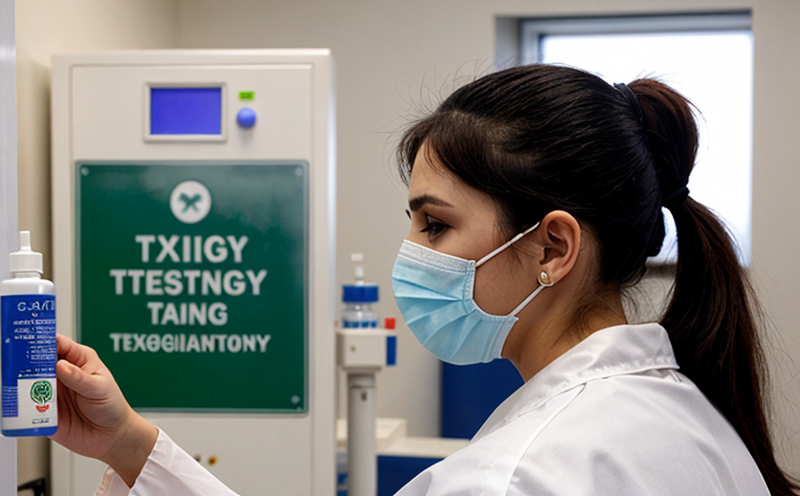Withdrawal Symptom Pharmacology Testing
In the pharmaceutical industry, ensuring patient safety and regulatory compliance is paramount. Withdrawal symptom pharmacology testing plays a critical role in this regard by evaluating the potential for withdrawal symptoms associated with cessation of drug use or dose reduction. This service focuses on understanding how sudden discontinuation affects patients, identifying risk factors, and assessing the efficacy of alternative treatments.
The process involves several key steps: identification of the drug or substance, formulation of a hypothesis regarding its potential to cause withdrawal symptoms, selection of appropriate animal models (usually rodents), design of experiments to measure physiological responses, and analysis of data. The aim is to provide insights into the safety profile of a compound by simulating realistic conditions that mimic clinical scenarios.
Withdrawal symptom pharmacology testing often requires specialized knowledge and advanced laboratory facilities capable of handling sensitive biological samples. Our state-of-the-art laboratories employ highly trained professionals who ensure precision and accuracy throughout each phase of the process. Compliance with international standards such as OECD Guidelines or ICH Q7A is guaranteed to maintain highest industry practices.
For instance, in this type of testing, we might use models like mice or rats for acute toxicity studies followed by longer term behavioral assessments. Specimen preparation typically includes sampling blood at specific intervals post-administration of the test substance. Advanced analytical techniques such as HPLC (High Performance Liquid Chromatography) may be employed to quantify levels of active metabolites in biological fluids.
The results from these tests are crucial for guiding further development stages including Phase I clinical trials where safety is paramount before moving onto larger scale efficacy studies. They also help inform formulation decisions aimed at minimizing side effects while maintaining therapeutic benefit.
| Animal Models | Mice, Rats |
|---|---|
| Sampling Points | Baseline, 1 hour post-administration, 4 hours, 8 hours |
| Data Analysis Methods | HPLC, ELISA (Enzyme Linked Immunosorbent Assay) |
| Reporting Standards | OECD Guidelines, ICH Q7A |
This level of detail ensures our clients receive comprehensive reports tailored to their specific needs. By providing robust scientific evidence supporting claims about the safety and efficacy of new treatments, we contribute significantly towards advancing knowledge in drug development.
Industry Applications
| Application Area | Description |
|---|---|
| Pharmaceutical Research & Development | Evaluating drugs for their potential to cause withdrawal symptoms upon cessation or dose reduction. |
| Regulatory Compliance | Meeting requirements set forth by various regulatory bodies worldwide regarding drug safety and efficacy. |
| Clinical Trial Design | Gathering data used in designing subsequent phases of clinical trials focusing specifically on patient safety. |
The demand for accurate and reliable withdrawal symptom pharmacology testing has never been higher, driven by increasing complexity in drug design coupled with heightened public awareness around pharmaceutical safety. Our expertise allows us to meet these challenges head-on, offering services that are both precise and efficient.
Quality and Reliability Assurance
To ensure the highest standards of quality and reliability, our laboratory adheres strictly to ISO 17025 accreditation requirements. This certification guarantees that all processes—from sample handling through final report generation—are conducted under controlled conditions meeting international benchmarks.
We maintain a strict chain-of-custody procedure for every specimen processed, ensuring traceability from collection point onward. Our team follows stringent protocols designed to minimize variability and error at each stage of the testing process. Regular internal audits complement external inspections performed by recognized accreditation bodies to verify ongoing compliance with all relevant guidelines.
In addition, continuous staff training and development programs are implemented to keep abreast of emerging trends in toxicology and safety pharmacology research. This commitment to excellence extends beyond our laboratories into every aspect of service delivery ensuring consistent high-quality output.





